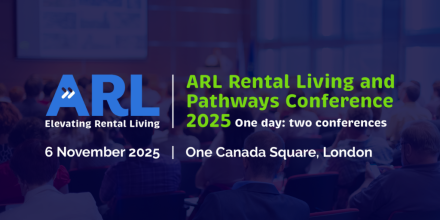Sheffield’s preference for BTR is emerging as renters in the city embrace the many benefits of living in energy efficient homes that offer a range of facilities including gyms, co-working amenities, EV charging and parking, according to new research by property specialist Centrick. Centrick, which was established in 2005, specializes in Building & Estate Management, BTR Portfolio Management, PRS Portfolio Management and Professional Service & Valuation in addition to Land, New Homes and Investment services has released new regional data today ahead of property and investment conference MIPIM.
The Love Where You Live research takes an in-depth look at Britain’s booming build-to-rent (BTR) market, the factors driving its growth, and why some renters and investors are turning their backs on the traditional private rented sector in favour of high quality, purpose-built BTR developments.
Unlike traditional apartment buildings, BTR properties focus on creating engaged, fully rounded communities with amenities and features like screening rooms, private dining facilities, hosting kitchens, residents’ lounges and bookable services built in, says the Love Where You Live research published by national property specialists Centrick.
The report says that Sheffield, which is a relative newcomer to the BTR landscape is already seeing a preference for Build To Rent homes, according to the responses. Sheffield which was named in 2023 as the UK’s first investment Zone is set to benefit from £1.2bn in investment and already has plans to increase the population of the city by 60,000. Despite a thriving employment, art, food and drink and leisure scene the city, like man in the UK, suffers from a chronic undersupply of quality rental property.
Rents in Sheffield are growing, with a 11.3% year on year increase from January 2022 to January 2023 and predictions of 11% growth to 2027. This growth in rental prices, is driven in part by the shortfall in housing supply and retention of under-graduate and post graduate students but also by the major attraction of the city and surrounding region as a centre for highly skilled jobs in areas from energy, technology, finance and digital.
BTR is emerging in Sheffield as a home for many, from PLATFORM_’s 335 unit scheme in Sylvester Street to Kangaroo Works, the city is starting to see more custom built BTR developments with more in planning stages.
Sheffield’s status as the UK’s greenest city, is reflected by residents’ preferences from the study too with residents reporting green and outdoor space as their number one priority on the importance scale, and the third highest factor they’d be willing to pay more for. Embracing sustainability initiatives doesn’t end with EPC ratings however, with 34% of Sheffield renters willing to pay more for EV charging facilities within the rental properties too.
Renters across Sheffield showed the lowest levels of satisfaction with the availability of parking across the city with only 30% stating they were “very satisfied” with local facilities, they also reported the lowest levels of satisfaction with local Bar and Restaurant’s at only 20% “very satisfied”. Despite this Sheffield residents showed a real sense of community in their responses. Over 85% stated that they got on ‘well’ or ‘very well’ with their neighbours, the highest of the northern cities studied.
Sheffield marginally topped the average for how engaged and active they felt their community was, with 69% of responders rating their community as ‘somewhat’ or ‘actively engaged’. Sheffield also ranked lounges and socialising space as 4th of the features they would choose to pay more for. However, Sheffield residents ranked private dining facilities joint lowest along with Manchester and Birmingham, suggesting that Sheffield residents value more open, inclusive spaces as opposed to private facilities.
It seems that BTR developments are creating happier residents across Sheffield, with the study showing that renters currently in Private Rented Property have a Net Promoter Score of -17 whereas their BTR counterparts are significantly higher at -3.
According to the report, the combination of energy efficient homes and community features is working, with just 1 in 10 current BTR residents considering going back to the private rented sector.
Energy efficiency has emerged as the most important factor when choosing a new home as renters continue to grapple with the cost of living crisis, according to a major report on the future of build-to-rent (BTR) and private rented sector property (PRS) in the UK.
Over 83% of renters in both BTR and PRS property reported that energy efficiency was important to them in their rental property with the availability of garden space and lounge/socialising space completing the renters top three wish-list. Parking and pet friendliness ranked 4th and 5th respectively says the research.
The research and report focuses on six cities – London, Birmingham, Manchester, Liverpool, Sheffield and Southampton – where BTR is increasing rapidly in popularity with a wide demographic of residents opting to rent instead of buy. The research suggests that renters have significant and varied preferences, with generational and locational trends emerging strongly. Renters show a significant propensity for choice and movement, with over 50% of renters planning to move from their current property within the next 12 months.
Key findings include:
Birmingham – 87% of renters satisfied or very satisfied with current amenities.
Manchester – Most likely to value pet friendliness.
Sheffield – 40% of renters willing to pay more for parking.
London – 88% of renters get on well or very well with the neighbours.
Liverpool – 36% of renters willing to pay more for EV charging facilities.
Southampton – 29% residents planning to stay put for 18+ months.
Centrick founder James Ackrill said:
“In recent years, the residential real estate landscape has witnessed the transformative trend known as Build to Rent housing. This innovative approach to housing investment, construction and management has swiftly emerged as a dynamic and relevant force in the housing market.
“Our objective is to dig into real world trends from real renters and explore the path forward for both those who seek to invest in BTR developments and those who aspire to call them home. This study is driven by the recognition that BTR is more than a mere housing solution; it is a concept that, when well-executed, can redefine the way we relate to the places we live. It carries the potential to create not just spaces, but communities where people feel a genuine connection to their surroundings, fostering a sense of belonging and happiness in their daily lives.”
He added:
“Love Where You Live is more than a research paper; it’s a testament to the transformative power of home, and a celebration of the boundless potential of Build to Rent housing in redefining the way we live, love, and create our lives in the future.”
The study also asked which amenities and features residents would be willing to pay a higher rent for. Parking ranked most highly with 38.69% of responders citing this as the singular feature they would be willing to pay more for. Garden space and energy efficiency also featured highly at 37% and 36% respectively, echoing what respondents cited as their most important features. Gym and fitness facilities and EV charging are cited at positions four and five respectively.
With over 80% of residents surveyed responding that energy efficiency was important or very important, it is obvious that this is the key feature for the majority of renters across both BTR and PRS when considering their next move. In fact, a mere 5.59% of responders stated that energy efficiency was “not important at all”, a testament to the importance of energy costs and sustainability to all residents. Birmingham-based Centrick, which also has offices in London, Manchester, Sheffield, Gerrards Cross and Fareham has grown consistently since its inception by successfully prioritising innovation, expertise, and building trusted relationships with its clients to deliver high quality service and results. First opening its doors in 2005, the agency now has over 23,500 properties across the UK on its books and manages over £3.5 billion in client assets.










